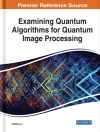An ontology is a formal description of concepts and relationships that can exist for a community of human and/or machine agents. The notion of ontologies is crucial for the purpose of enabling knowledge sharing and reuse. The Handbook on Ontologies provides a comprehensive overview of the current status and future prospectives of the field of ontologies considering ontology languages, ontology engineering methods, example ontologies, infrastructures and technologies for ontologies, and how to bring this all into ontology-based infrastructures and applications that are among the best of their kind. The field of ontologies has tremendously developed and grown in the five years since the first edition of the ‘Handbook on Ontologies’. Therefore, its revision includes 21 completely new chapters as well as a major re-working of 15 chapters transferred to this second edition.
İçerik tablosu
Ontology Representation Languages.- What Is an Ontology?.- Description Logics.- Ontologies in F-Logic.- Resource Description Framework.- Web Ontology Language: OWL.- Ontologies and Rules.- Ontology Engineering.- Ontology Engineering Methodology.- Ontology Engineering and Evolution in a Distributed World Using DILIGENT.- Formal Concept Analysis.- An Overview of Onto Clean.- Ontology Design Patterns.- Ontology Learning.- Ontology and the Lexicon.- Ontology Evaluation.- Ontology Engineering Environments.- Exploring the economical aspects of ontology engineering.- Ontologies.- Foundational Choices in DOLCE.- An Ontology for Software.- COMM: A Core Ontology for Multimedia Annotation.- Using the PSL Ontology.- Ontologies for Formal Representation of Biological Systems.- Ontologies for Cultural Heritage.- Ontologies.- RDF Storage and Retrieval Systems.- Tableau-Based Reasoning.- Resolution-Based Reasoning for Ontologies.- Ontology Repositories.- Ontology Mapping.- Ontology based Infrastructureand Methods.- Ontologies and Software Engineering.- Semantic Web Services.- Ontologies for Machine Learning.- Information Extraction.- Browsing and Navigation in Semantically Rich Spaces.- Ontology based Applications.- Ontologies for Knowledge Management.- Application of Ontologies in Bioinformatics.- Semantic Portals for Cultural Heritage.- Ontology-Based Recommender Systems.












